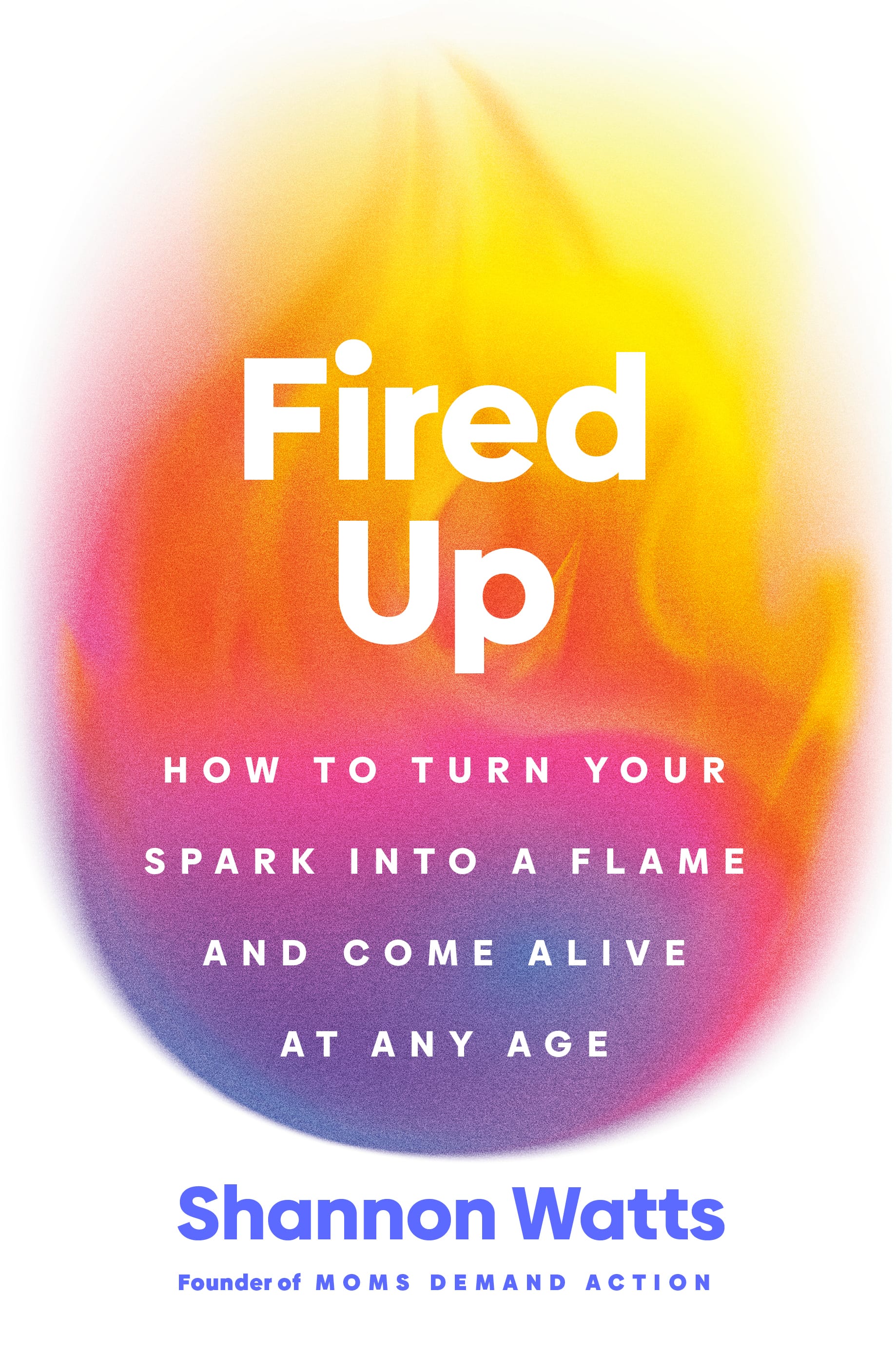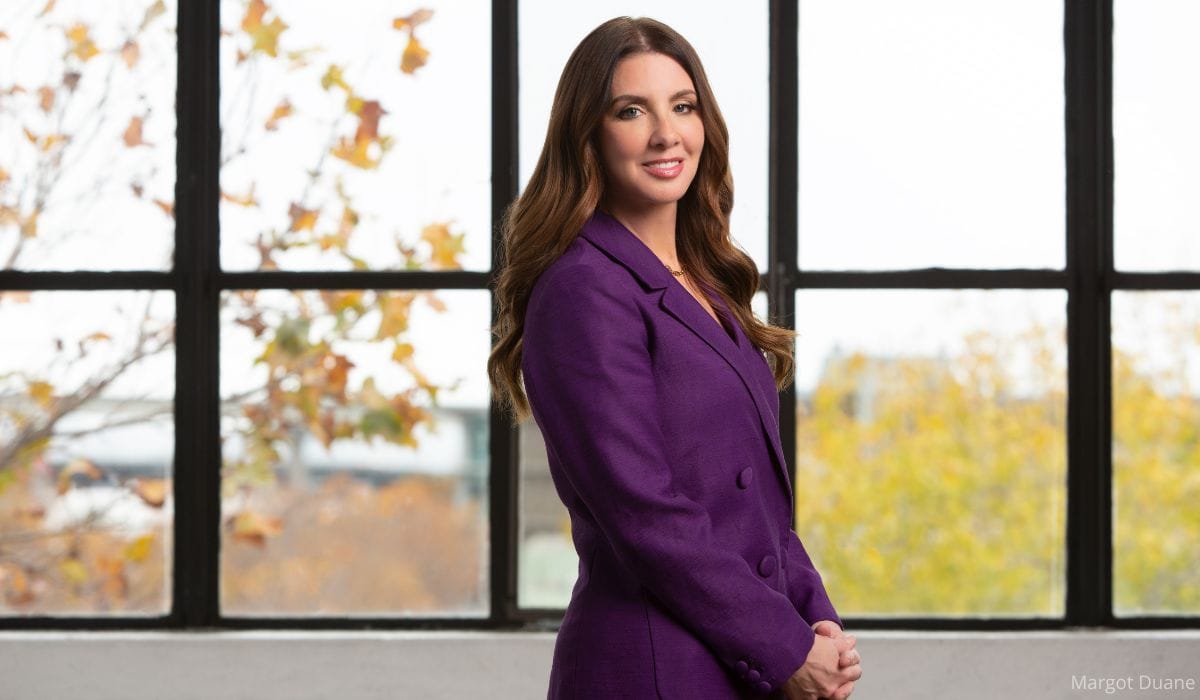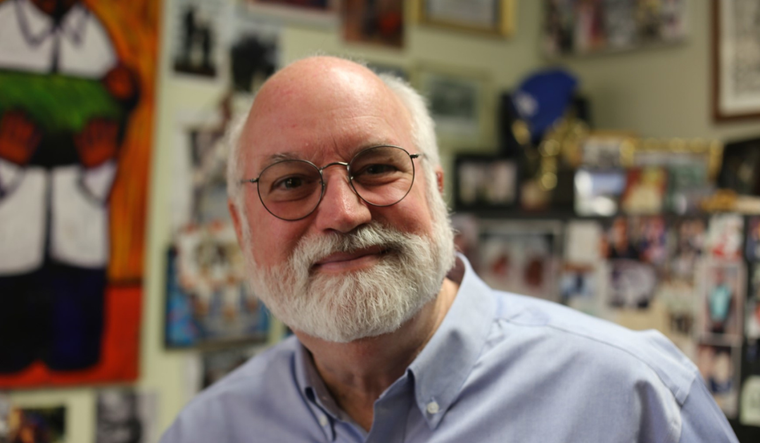Do You Need to Take a Sacred Pause? Activist Shannon Watts Says Most of Us Do and Explains How to Make it Happen
When I started Moms Demand Action in 2012, I’d just come off a five-year break from my career as a corporate communications executive. During that time, I divorced, changed religions, remarried, and began thinking seriously about what I wanted to do with the rest of my life. That pause prepared me, after a horrific school shooting tragedy, to jump into action and start a whole new phase of my life. And then, 11 years later, when I stepped away from Moms Demand Action, I paused again. I wrote, I visited my adult kids, I took up boxing. And it was that pause that helped prepare me to do the work to try to elect Kamala Harris.
The philosopher Viktor Frankl said, “Between stimulus and response there is a space. In that space is our power to choose our response. In our response lies our growth and our freedom.” Buddhists have a name for that space: the sacred pause. It’s a time of reflection and preparation; a conscious decision to pay attention to the present moment that lies between what just happened and what comes next. Tara Brach, a Buddhist teacher, calls this sacred pause, “a suspension of activity, a time of temporary disengagement when we are no longer moving towards any goal. These little seconds of space may end up directing the course of your life.”
If, like me, you’re a type-A woman always looking for a plan, even just a few seconds sitting in discomfort might feel like suffering. There’s an understandable urgency to act right now—to register our outrage, to show solidarity, to understand, and to try to blunt whatever repercussions are coming our way. But not only is there wisdom in waiting, there is potential harm in coming to a rash conclusion or acting for the sake of acting. As the poet and activist Andrea Gibson wrote on Instagram, “I understand that people are frantic for a clear and direct answer. But it’s so important to choose curiosity over certainty in a moment that asks us to create something entirely new. This is that moment.”
So, instead of jumping to conclusions or into action, I’m going to embrace this sacred pause. I am going to sit with what I don’t know while refusing to surrender to fear or cynicism. And even though I’m not sure what comes next (I promise to let you know when I do), I can share what I’ve learned—as an activist, as a woman, as a citizen of Earth School—about what to do during the sacred pause:
Avoid the instinct to blame and shame.
One of the biggest takeaways from all of the organizing we did this election cycle was the power of unity. Affinity groups came together, and that cohesion made a positive difference in election outcomes up and down the ballot. And yet we still lost, and that loss hurts—a lot. I’ll be honest: After working so hard to organize white women during the election, it really pissed me off that a majority of them voted yet again for Trump. But guilt and shame will only push the people we want to join us further away. So, instead of fault-finding, I’m trying to shift my mindset from being accusatory to being curious. Short-term, lashing out at others feels satisfying, but long-term it’s a recipe for even deeper and longer division in a polarized nation.
Try to unplug.
As an avid cable news watcher, I haven’t turned on CNN or MSNBC once since the election. I’m also trying to be less present on social media and I’m definitely not reading the comments sections. That’s because the answers to what comes next won’t come from pundits paid to encourage us to pick a side or from online trolls (foreign and domestic) who have a vested interest in keeping Americans warring with one another.
As Chasten Buttigieg recently tweeted, “So much of the work ahead will be in our own communities requiring focused dedicated allyship. Allyship is … rolling up your sleeves and making a plan with your time, your money, your privilege, and your power. If you don’t have the answers yet, it’s more than ok to log off and spend some time finding them.”
Begin to (re)build your resilience.
The fight for democracy will last your entire lifetime. As Alice Walker has said, “Activism is the rent I pay to live on the planet.” You need to ground yourself and be ready for what’s next. That looks different for everyone: you can practice mindfulness and self-compassion, find tools to help you manage your emotions, decide to step outside of your comfort zone, cultivate a support system, engage in new or regular physical activity, or practice gratitude.
But no matter how you build your resilience muscle, remember that change takes time, and it’s almost always incremental. Some say activism is a marathon and not a sprint, but it’s more like interval training—high-intensity sprints followed by recovery periods. Without the recovery periods, there are no gains in endurance or strength. Just because you’re resting, that doesn’t mean you’ve given up.
As Cheryl Strayed wrote after the election in 2020, “…this despair you’re feeling so acutely right now isn’t a sign that you should turn away from your calling, but rather that you must turn toward it. Your profound sense of defeat is evidence to me that you’re in the fight.”
See yourself as a leader.
We’ve been sold the myth that leadership is something inherent—you’re either born with it or you're not. But everyone can be a leader, and as women, we already fill that role in so many areas of our lives, from our families to our workplaces to our communities. I was a stay-at-home mom of five when I posted my plea for change on Facebook after the shooting at Sandy Hook School. As a 41-year-old woman in Indiana, not many people looked at me and saw a leader. In fact, in the early days of Moms Demand Action, I was told routinely that I wasn’t qualified, that what I was doing was duplicative, or that it simply couldn’t be done. But I didn’t listen to the naysayers; I listened to my gut.
Women are often told they have nothing valuable to offer, but our wealth of experiences and expertise are actually the answer to many of the most pressing problems in the world today. When it’s time to act, be ready to lead.
Figure out your niche.
As the founder of the nation’s largest women-led volunteer army, I’ve seen women come alive over and over again when they figure out how to align their abilities, values and desires. We each have a unique role to play in the world; figure out what yours is.
Andrea Gibson’s Instagram post included this advice on how to move forward after the election: “I keep asking myself, ‘What is my job in this moment? What do I specifically have to offer?’ It’s empowering to ask those questions because no one’s job will be the same … Creatively explore where you might be most useful.”
In this pause, try to remember what lights you up and makes you feel alive. Ask your friends and family what makes you unique. Rekindle passions you’ve let go dormant. You don’t have to start an organization or run for office to make a difference; just by being your authentic self, you encourage, empower, and inspire others to follow your example.
Find your community.
The author, organizer, and educator Mariame Kaba said, “Nothing that we do that is worthwhile is done alone.” You don’t need to be part of an army; just a handful of people can make a huge difference—with one another in their communities and neighborhoods. If you don’t know your neighbors in the community you already live in, make an effort to meet them. And be sure to surround yourself with women role models and supporters who will encourage you to challenge the status quo.
I’ve been blessed to be mentored by amazing women, including colleagues and friends, who serve as an informal circle of advisers and supporters. We all need good people around us to be able to do this work every day. From starting meal trains to taking care of each other’s kids, when we rally around one another, we create communities that will be a part of our lives forever. And that’s what creates lasting, positive change.
There are plenty of fires to fight right now in America, but there’s a fire inside you, too. Just as we all need some time and space to understand why we lost or what comes next, we also need to appreciate this sacred pause—this space between fires—and let our flame find its way.
And now... I’m so thrilled to announce my new book, Fired Up: How to Turn Your Spark Into a Flame and Come Alive at Any Age, and its cover here! This guide to figuring out what lights you up and learning how to live on fire will be published June 17th, 2025. You can preorder a copy now.

Shannon Watts is the founder of Moms Demand Action, the largest grassroots group fighting gun violence in the U.S. She's been named one of TIME’s 100 Most Influential People, a Forbes 50 over 50 Changemaker, and a Glamour Woman of the Year. Watts is an active board member of Emerge America, one of the nation’s leading organizations for recruiting and training women to run for office. Learn more here.
[Editor’s note: The above essay originally ran in Shannon’s newsletter “Playing with Fire,” which you can read here.]
Please note that we may receive affiliate commissions from the sales of linked products.



